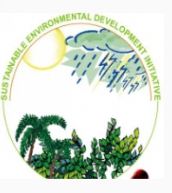Mercury-Free Dentistry Week 2023: SEDI Calls For Use Of Alternatives
As part of activities in commemorating the 2023 Mercury-Free Dentistry Week, the Sustainable Environment Development Initiative (SEDI) has called for the use of mercury-free alternatives in tooth filling, saying amalgam does much harm to the body.
This was contained in a press statement signed by the Executive Director of SEDI- Dr. Tom Aneni. According to the statement, "Mercury-free fillings are tooth-friendly, amalgam is tooth unfriendly. Amalgam is a colonial relic which requires removal of good tooth matter, creating weaker teeth and the need for future repairs.
"By contrast, the alternatives are tooth friendly.Glass ionomers are child-friendly: atraumatic restorative treatment (ART) does not require a power drill, or an electrical source. Hence ART can be done in remote villages where electrical service is intermittent.
"Composites are technically superior to amalgam, preserving the tooth rather than removing good tooth matter, and easier for future repairs, making them a better price in the long run.
"Mercury is so toxic it is the sole subject of an international convention whose goal is to end man-made uses of mercury: the Minamata Convention.
"Mercury is the most vaporous of the heavy metals, so a dental clinic still placing amalgam is a very dangerous work environment, especially for young women.
"In the teeth, amalgam releases mercury vapor into the body, including (a) the brain, (b) kidneys, (c) the mother’s breast milk, and (d) the female uterus. Because their brains are developing, at gravest risk of permanent injury for mercury are children – meaning we must also protect nursing mothers and pregnant women.
"Mercury-free fillings preserve tooth structure: Mercury-free fillings can help prevent future caries: Mercury-free fillings are long lasting; Competent dentists can do alternatives as quickly as amalgam.
"Mercury in fish and vegetables: Amalgam’s mercury converts to methylmercury in the fish. Continued use of amalgam in Africa means that children with a fish diet are at serious risk of brain damage. Dental mercury gets into the ground and from there into vegetables people eat.
"Dentistry is one of the largest users of mercury in the world. The number of dentists in Africa is growing rapidly; it is essential that both new and old are trained in mercury-free dentistry, or the mercury pollution will get much worse. In Africa, dental mercury is often diverted via the black market for use in small-scale gold mining", the statement said.




Comments